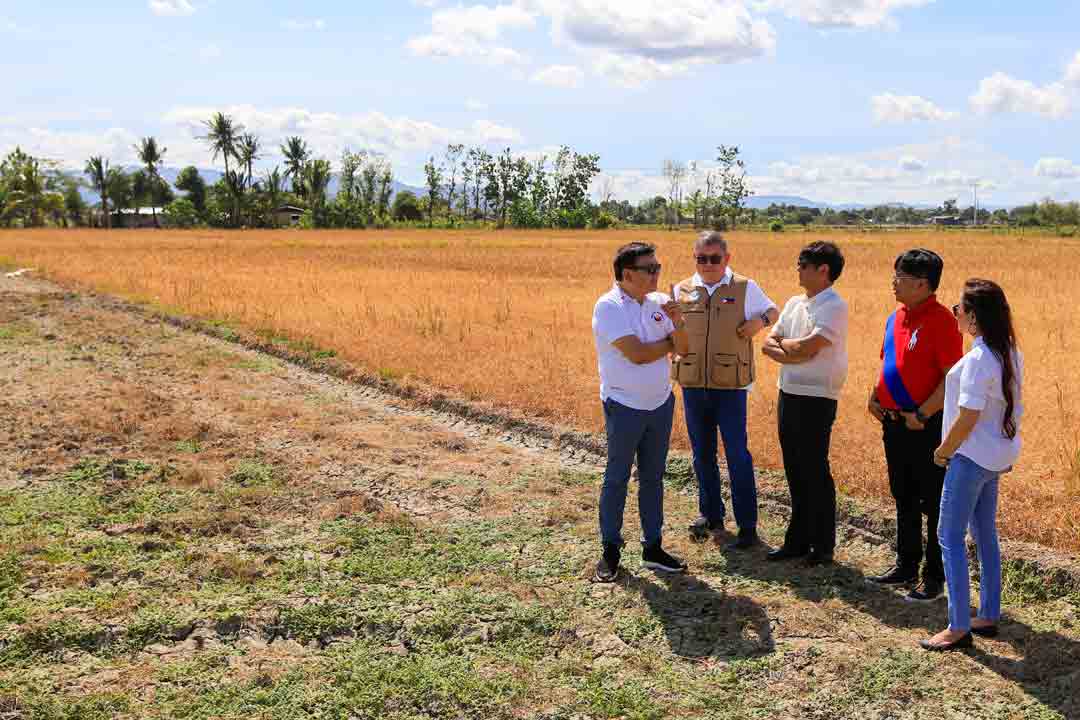Marcos eyes solar-powered post-harvest facilities

PHILIPPINE PRESIDENT Ferdinand R. Marcos, Jr. on Tuesday said the government would set up solar-powered cold storage and other post-harvest facilities southwest of Luzon to help boost farmers’ income after seeking to remove non-tariff barriers to agricultural imports amid rising food prices.
“We will put up new cold storages with new designs. Because of high electricity costs, solar will be responsible for powering the cold storage,” he said in Filipino in response to a question from an onion farmer during a town hall forum in Occidental Mindoro province, which has been affected by the El Niño weather phenomenon.
Agriculture Secretary Francisco “Kiko” P. Tiu Laurel, Jr. said two solar-powered cold storage facilities with a capacity of 1,400 tons each will be established in the province this year.
He said the government will put up five more solar-powered cold storage facilities in the province next year under the 2024 national budget.
“Our target is to buy 600 units of containerized cold storage for every cooperative to help them store harvests during peak season.”
The government would also provide for refrigerator trucks and help increase slaughterhouses to address supply issues, Mr. Laurel said at the Tuesday event.
“While the building of cold storage facilities for agricultural goods should be welcomed, the President should also look to the private sector to provide similar facilities, as this is an area that is ripe for private sector investing,” Terry L. Ridon, convenor of think tank InfraWatch PH, said in a Facebook Messenger chat.
Federation of Free Farmers National Manager Raul Q. Montemayor said putting up storage and other post-harvest facilities need to be linked up with a financing system “so that farmers can borrow against stored stocks while waiting for prices to improve.”
“Then there should also be a logistics and marketing system so that stocks can be efficiently transferred to buyers,” he said in a Viber message.
“While these are being set up, trade policy must be properly synchronized so that the gains from these investments and their benefits to farmers are not disproportionately offset by the entry of smuggled, undervalued or misdeclared imports that may easily enter our market as a result of the easing of procedures for agricultural imports,” he added.
Mr. Laurel, meanwhile, vowed to boost Mindoro farmers’ integration into state-assisted farm-to-market outlets, known as Kadiwa stores, in Metro Manila by subsidizing transport costs.
Occidental Mindoro is among the country’s largest producers of onions, and the province expects a 60% increase in production this year with the number of onion farmers increasing to over 300 this year from about 200 last year.
Onion prices skyrocketed in 2022, prompting the Agriculture department to allow more imports in 2023 in a bid to avoid another round of price increases.
However, Agriculture spokesman Arnel de Mesa in February noted a slump in the farmgate prices of onion, with farmers selling their produce at about P20 per kilo.
Onion farmgate prices would likely further decline as the country approached the March-April peak harvest season, he said at that time.
Last week, Mr. Marcos issued an administrative order (AO) mandating the Agriculture department as well as the Trade and Finance agencies to further ease procedures for agricultural imports and remove non-tariff barriers, as the country struggles to curb inflation mainly driven by food prices.
Non-tariff barriers are policy measures that restrict trade such as quotas, import licensing systems, regulations and red tape.
Mr. Montemayor said the government should make a distinction between non-tariff barriers and non-tariff measures such as quarantine regulations and quotas, which are part of the Philippines’ commitments to the World Trade Organization.
Licensing systems that the latest AO seeks to streamline are necessary to properly identify and track the movement of imports, he added.
At an inspection of an agricultural site in Occidental Mindoro, Mr. Marcos said the heatwave’s impact on farmers was apparent, vowing to put up a dam in the province that would cover the towns of San Jose and Magsaysay.
NO PLANS TO IMPORT
Meanwhile, the government sees no need to import additional farm products to augment the food supply, Jose Maria “Joey” M. Villarama, head of the Philippine El Niño Task Force, told BusinessWorld in a Viber message.
“This is with emphasis on ‘additional’ imports because our regular imports have been factored in as part of stabilizing the food supply,” he said.
“The Agriculture department is closely monitoring the production status of primary agricultural products. Importation can be an intervention to ensure the sufficiency and stability of supplies, if necessary,” he added.
Mr. Villarama said the extreme heat is affecting some farm sectors in varying degrees. But the rice supply remains stable despite the damage and losses from El Niño.
He added that the harvest season from the last crop season continues “and we anticipate that the yield from that harvest will help augment our buffer stocks.”
More than 66,000 hectares of rice fields and other plantations have been damaged by El Niño, though 78% of these have a chance to be recovered, “meaning, the damaged produce can still be used,” Mr. Villarama said.
He said the government has distributed about P1.1 billion in aid to almost 74,000 farmers, fishermen and their families in several regions affected by the dry spell, excluding the assistance given by Mr. Marcos during his visit to Mindoro province on Tuesday. — Kyle Aristophere T. Atienza and Chloe Mari A. Hufana
